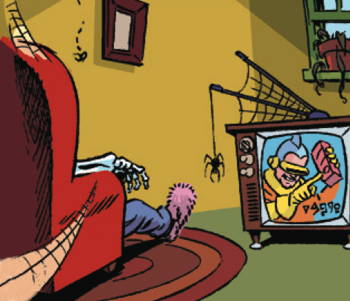May 2016
May 22, 2016
Now you can lick your cat
The inventors of the Licki Brush say, "We have designed LICKI brush to bring you and your cat closer. By using LICKI with your cat on a regular basis, you'll develop a more intimate and bonded relationship, much like a mama cat bonds with her young."As of May 22, on Kickstarter they're one-third of the way to successfully funding the manufacture of this thing.
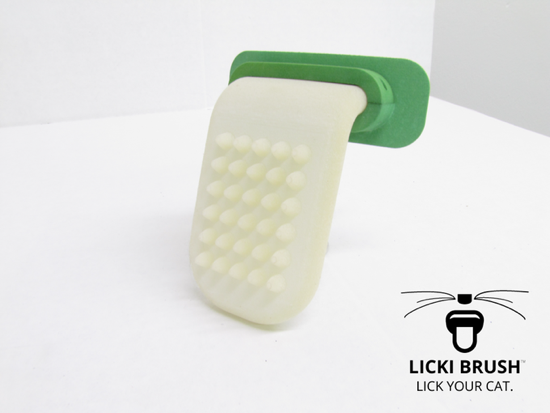
Posted By: Alex - Sun May 22, 2016 -
Comments (4)
Category: Inventions, Cats
That Sly Old Gentleman from Featherbed Lane
Charming song about elderly neighborhood Peeping Tom.
Posted By: Paul - Sun May 22, 2016 -
Comments (1)
Category: Eccentrics, Myths and Fairytales, 1930s
May 21, 2016
Brits ban 666 from license plates
In 1990, the British banned the devil from their roads. But over in Russia, where his Satanic influence continued to reign unchecked, a Dodge Viper with the license plate '666' mysteriously burst into flames in 2009.
Arizona Republic - May 3, 1991


Bangor Daily News - Feb 5, 1990
Posted By: Alex - Sat May 21, 2016 -
Comments (6)
Category: 1990s, Cars
The Anatomical Venus
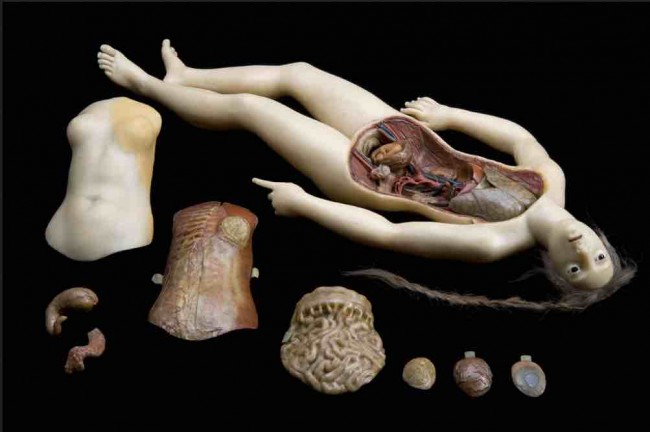
This new book about the "Anatomical Venus" looks to be fascinatingly weird. Lots more photos at the link.
Posted By: Paul - Sat May 21, 2016 -
Comments (2)
Category: Art, Body, Surgery, Women, Eighteenth Century
May 20, 2016
AbsorbPlate
It's a plate that makes food healthier by soaking up excess calories, according to its creators (the Thai Health Promotion Foundation and BBDO Bangkok):I have an idea that would work even better — a smaller plate.

Posted By: Alex - Fri May 20, 2016 -
Comments (8)
Category: Food, Health, Inventions
Mystery Gadget 37
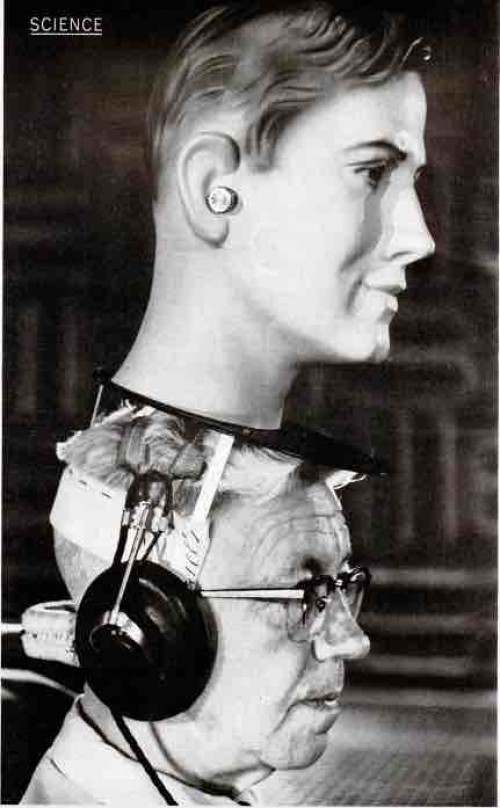
Why? What for? The answer is here.
Posted By: Paul - Fri May 20, 2016 -
Comments (7)
Category: Technology, 1960s, Head
May 19, 2016
Allergic to Money
A few cases from the historical record of people who were allergic to money.The obligatory joke in this situation: "I'm not allergic to money, but it's allergic to me."

Medford Mail Tribune - Mar 13, 1953

Arizona Republic - Aug 19, 1954

The Wilmington News Journal - Jan 8, 1963
Posted By: Alex - Thu May 19, 2016 -
Comments (2)
Category: Health, Money
Suit Against Satan
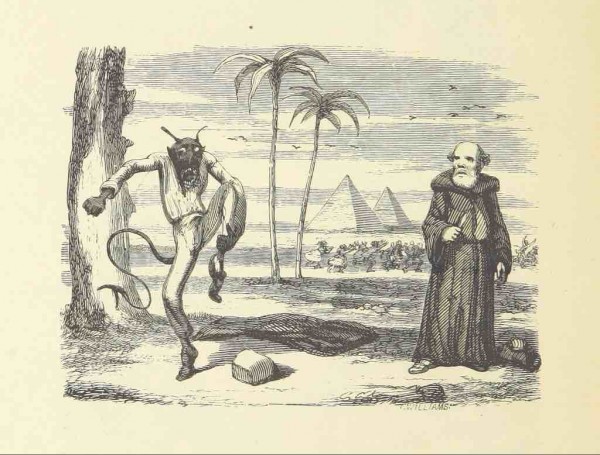
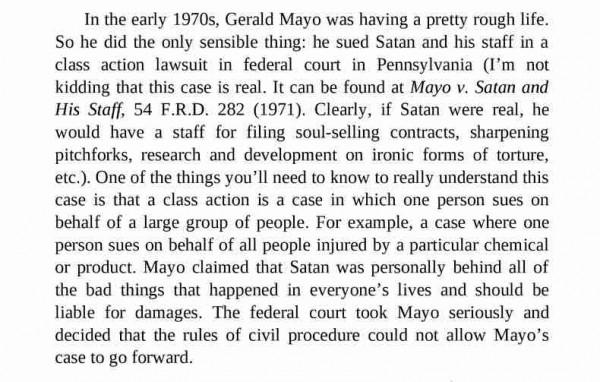
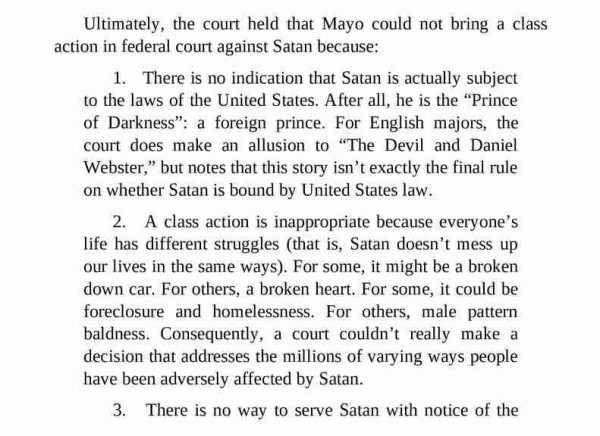

Original text here.
Wikipedia entry here.
Posted By: Paul - Thu May 19, 2016 -
Comments (7)
Category: Really Bad Ideas, Religion, Stupidity, Superstition, Lawsuits, 1970s, Fictional Monsters
May 18, 2016
Let Children Vote
Yesterday I posted about a proposal to disenfranchise the elderly. Here's a similar idea — a scheme to reduce the political power of grey hairs — but it goes about it in a different way. Instead of taking away the vote from the elderly, you give the vote to children. Their new political power would presumably balance out the influence of seniors, shifting state policy in new directions.This idea has been repeatedly advocated by Paul E. Peterson, professor of government at Harvard. He's argued for the idea in the journal Daedalus (Fall 1992), The Brookings Review (Winter 1993), and Education Next (Jan 2011).
The way it would work, in practice: "parents exercise the vote on behalf of their children... parents be given the option to assign the right to their child whenever they think he or she is capable of casting it on their own. That right, once given, can never be taken back."
The details that remain to be worked out: "Which parent gets the vote? What is to be done with election-day newborns? What proof of parentage is required?"
Peterson was not, by any means, the first to come up with the idea of letting children vote. Philippe van Parijs gives a brief history of the children's suffrage movement in his book Just Democracy:

Image source: The Brookings Review (Winter 1993)
Posted By: Alex - Wed May 18, 2016 -
Comments (11)
Category: Politics, Reformers, Do-gooders, Agitators and SJWs, Children
Elvis and the Hollywood Vice Squad
I wonder what the Hollywood Vice Squad of 1957 would make of many a modern pop music show?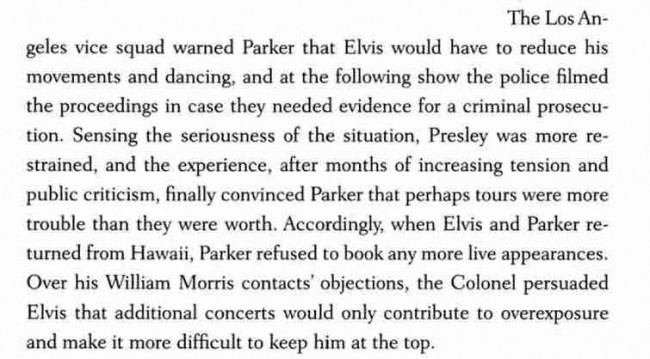
Original text here.
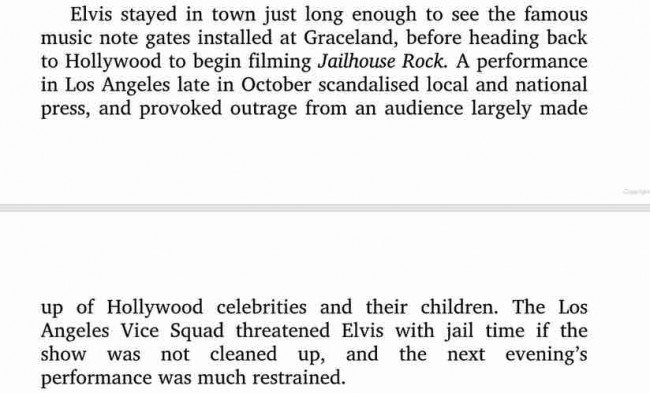
Original text here.
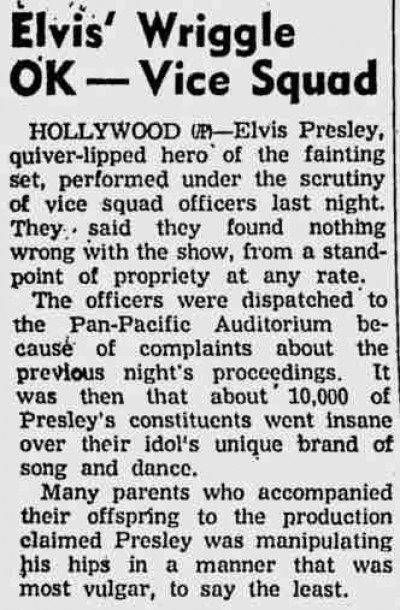
Original text here.
Posted By: Paul - Wed May 18, 2016 -
Comments (5)
Category: Celebrities, Censorship, Bluenoses, Taboos, Prohibitions and Other Cultural No-No’s, 1950s, Dance
| Get WU Posts by Email | |
|---|---|

| Who We Are |
|---|
| Alex Boese Alex is the creator and curator of the Museum of Hoaxes. He's also the author of various weird, non-fiction books such as Elephants on Acid. Paul Di Filippo Paul has been paid to put weird ideas into fictional form for over thirty years, in his career as a noted science fiction writer. He has recently begun blogging on many curious topics with three fellow writers at The Inferior 4+1. Chuck Shepherd Chuck is the purveyor of News of the Weird, the syndicated column which for decades has set the gold-standard for reporting on oddities and the bizarre. Our banner was drawn by the legendary underground cartoonist Rick Altergott. Contact Us |
